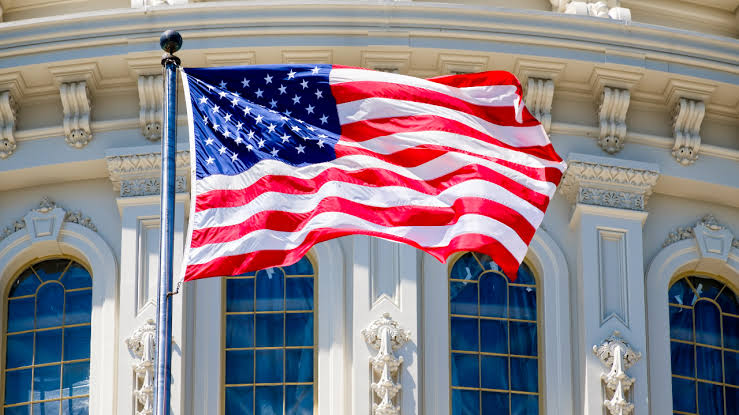The world of crypto is rapidly evolving, and it’s no longer a fringe topic. Even the traditional financial world is taking notice! Top US regulators are seriously considering how banks should handle digital assets like Bitcoin and Ethereum. Want to know what’s going on behind the scenes and what it could mean for the future of finance? Let’s dive in.
Why Are Regulators Suddenly Talking About Crypto?
Imagine a scenario where banks could offer you secure ways to buy, sell, and hold your crypto. That’s precisely what regulators are discussing. Jelena McWilliams, the former Chair of the Federal Deposit Insurance Corporation (FDIC), has been vocal about the need for a clear regulatory framework. She highlighted the risks of keeping crypto activity outside the regulated banking system, stating:
“If we don’t bring this activity inside the banks, it is going to develop outside of the banks… [Then] the federal regulators won’t be able to regulate it.”
This sentiment is echoed by other key figures like Federal Reserve Vice Chair of Supervision Randal Quarles, who mentioned a regulatory “sprint” involving the FDIC and the Office of the Comptroller of the Currency (OCC). It’s clear that there’s a concerted effort to get ahead of the curve.
What’s the Goal of This Regulatory Push?
According to Jelena McWilliams, the primary goal is to create a pathway for banks to interact with the crypto industry safely and responsibly. Speaking at the Money 20/20 conference, she outlined several key areas they’re exploring:
- Custody of Digital Assets: Allowing banks to act as custodians, securely storing crypto on behalf of their customers.
- Using Crypto as Collateral: Exploring the possibility of banks accepting digital assets as collateral for loans.
- Holding Crypto on Balance Sheets: Ultimately, determining the conditions under which banks can hold crypto assets directly on their balance sheets.
What Are the Potential Benefits of Bank Involvement in Crypto?
Bringing crypto into the regulated banking sector could unlock several advantages:
- Increased Security and Trust: Banks have established security protocols and are subject to strict regulations, potentially making crypto more accessible and less risky for the average person.
- Wider Adoption: Mainstream banking involvement could lead to greater acceptance and use of cryptocurrencies.
- Innovation and New Financial Products: Banks could develop innovative financial products and services leveraging blockchain technology.
- Regulatory Oversight: Bringing crypto activities under regulatory purview can help protect consumers and prevent illicit activities.
What Challenges Do Regulators Foresee?
It’s not all smooth sailing. Regulators are grappling with significant challenges, particularly regarding the volatility of crypto assets. McWilliams pointed out:
“The issue there is valuation of these assets and the fluctuation in their value that can be almost on a daily basis… You have to decide what kind of capital and liquidity treatment to allocate to such balance sheet holdings.”
Key challenges include:
- Valuation: The rapid price swings of cryptocurrencies make accurate valuation difficult.
- Volatility: The inherent volatility poses risks to banks’ balance sheets and requires careful capital allocation.
- Capital Requirements: Determining the appropriate capital reserves banks need to hold against crypto assets is complex.
- Liquidity: Ensuring sufficient liquidity in case of market downturns is crucial.
What’s the Timeline and What Can We Expect?
While there’s no definitive timeline, the discussions are clearly underway. McWilliams indicated that establishing a framework for banks to act as custodians is likely the most immediate step. Addressing the complexities of banks holding crypto on their balance sheets will likely take more time and deliberation.
So, What Does This Mean for You?
For crypto enthusiasts and potential investors, this regulatory movement signals a potential shift towards greater legitimacy and integration of digital assets within the traditional financial system. It could mean more secure ways to manage your crypto and potentially new investment opportunities down the line.
In Conclusion: A Bridge Between Traditional Finance and Crypto?
The discussions among US regulators are a significant development in the crypto landscape. By proactively addressing the challenges and opportunities, they are potentially paving the way for a future where banks and crypto coexist, offering consumers more choices and potentially fostering greater stability within the digital asset ecosystem. The journey is ongoing, but the direction seems clear: crypto is becoming too important to ignore, and regulators are actively working to define its place in the financial world.
Disclaimer: The information provided is not trading advice, Bitcoinworld.co.in holds no liability for any investments made based on the information provided on this page. We strongly recommend independent research and/or consultation with a qualified professional before making any investment decisions.


